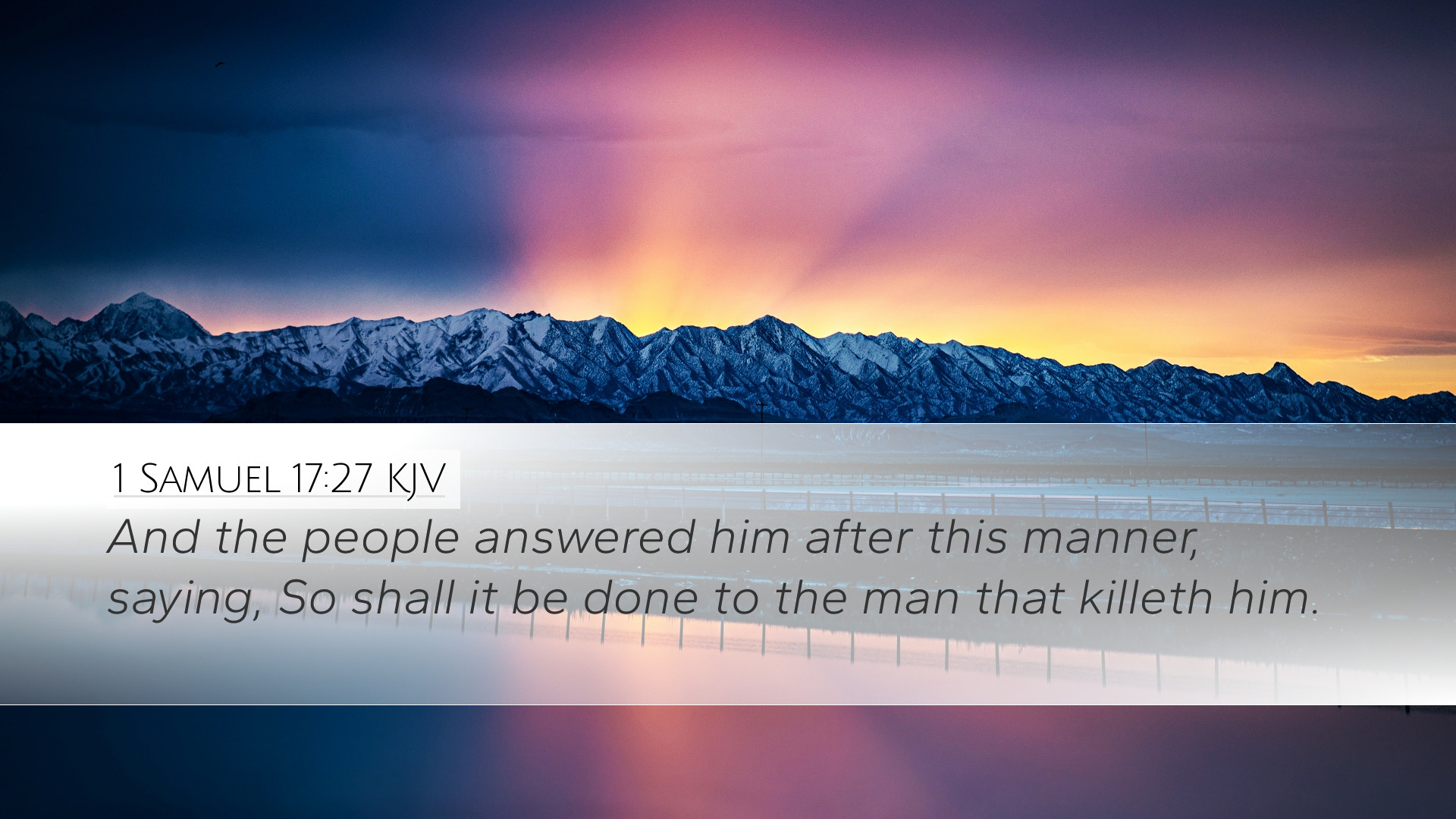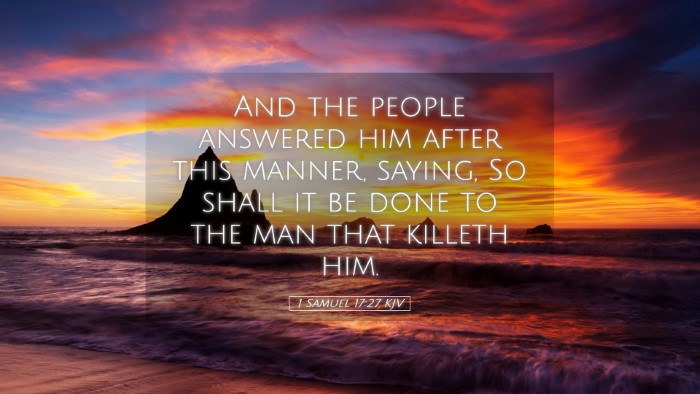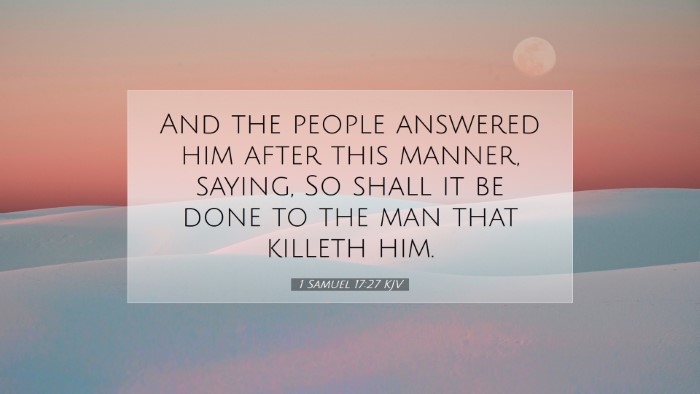Commentary on 1 Samuel 17:27
Verse (1 Samuel 17:27): "And the people answered him after this manner, saying, So shall it be done to the man that killeth him."
Overview
This verse is situated in the narrative of David and Goliath, which serves as a critical illustration of faith, courage, and God's sovereignty in Israel's history. The exchanges between the characters provide profound insights into the spiritual and moral dimensions of the story.
Contextual Significance
The backdrop of this verse includes the fear that had gripped the Israelite army due to Goliath’s taunts. The people’s response within the narrative is a significant reflection of popular sentiment as they react to Goliath’s challenge. This verse emphasizes the reward for the one who would defeat Goliath, which includes not only material rewards but also social elevation, highlighting the desperation and hope intertwined in their collective psyche.
Responses and Implications
- Faith and Doubt: The fear of the army juxtaposed with David’s faith illustrates a conflict between trust in God and reliance on human might.
- Motivation: The promise of great rewards serves as both a lure for potential champions and an indictment of the standing army, which was unwilling to fight.
- Divine Selection: The passage sets the stage for God's choice of David, not for his stature but for his heart, reshaping the understanding of who is truly equipped for battle.
Commentary Insights
Matthew Henry
Henry emphasizes the unworthiness of the Israelites to challenge Goliath, marking their fear as a significant barrier to their faith. He remarks that David's inquiry about the rewards highlights an innocent curiosity, contrasting the reluctance of the seasoned warriors. Henry illustrates David as a character whose heart is attuned to God's purpose even at a young age.
Albert Barnes
Barnes points out that the people’s response indicates their desperation and the importance of the societal structures at play. They were not only fearful of defeat but also of the disgrace associated with it. His commentary elaborates on the implications of the promise made to the one who kills Goliath, indicating that the motivation must be understood in the socio-political context of the time. Barnes asserts that such promises were common in ancient warfare, used to galvanize fighters.
Adam Clarke
Clarke provides a detailed exegesis of the term “the man,” addressing the significance of individual valor. He notes that within the text, this individual is not just a figure of militaristic prowess but a representative of divine selection. Clarke elucidates the spiritual implications of receiving God’s approval, suggesting that external rewards pale in comparison to the internal confirmation of God’s call.
Theological Reflections
The verse encourages significant theological reflections about how God calls and equips the unassuming for great tasks. It calls for an examination of how societal structures and human fears can impede faith and victory. The promise of rewards for victory serves both as an incentive and a theological challenge, directing the focus to God’s chosen instruments.
Application for Pastors and Theologians
For pastors and Bible scholars, this verse serves a dual purpose: it both illustrates the challenges faced in ministry and encourages faith over fear. The lessons from David’s bravery amidst collective despair resonate to this day, urging the faithful to step forward in trust and obedience. Therefore, this passage can encourage congregations to recognize their potential in God and to handle the large 'Goliaths' in their own lives.
Conclusion
In conclusion, 1 Samuel 17:27 encapsulates the core struggle of faith amid fear, a timeless exploration of God’s ability to empower those who seem least likely to succeed. The valuable insights derived from Matthew Henry, Albert Barnes, and Adam Clarke invite deep reflection on personal calling and the importance of trusting in God’s providence in the face of overwhelming odds.


